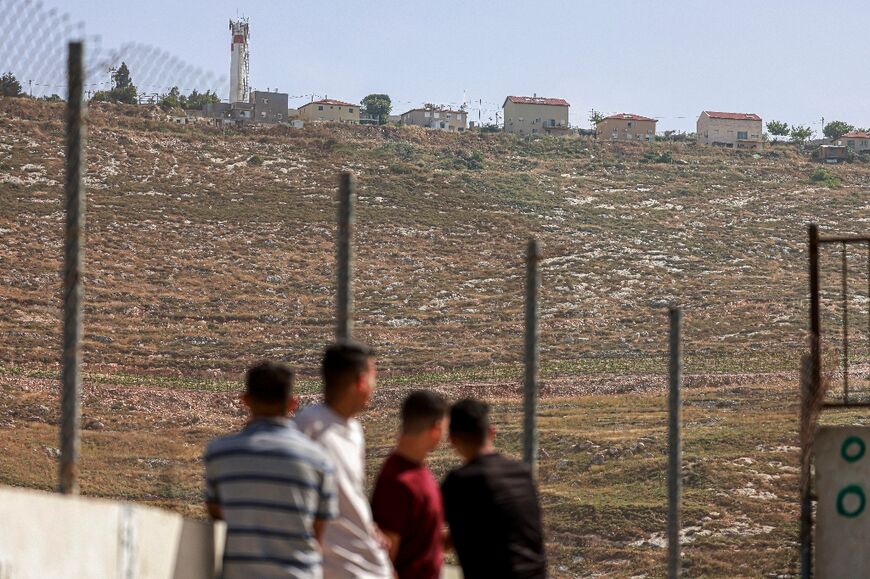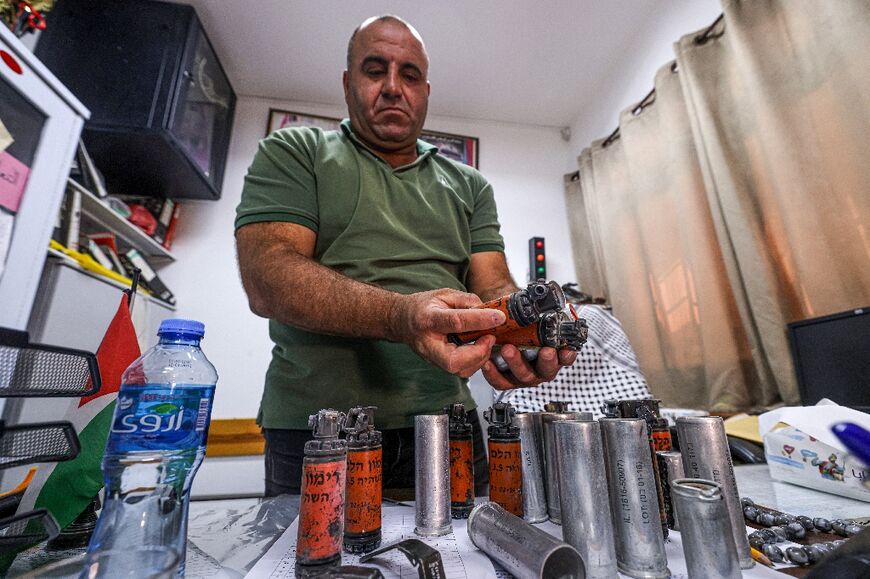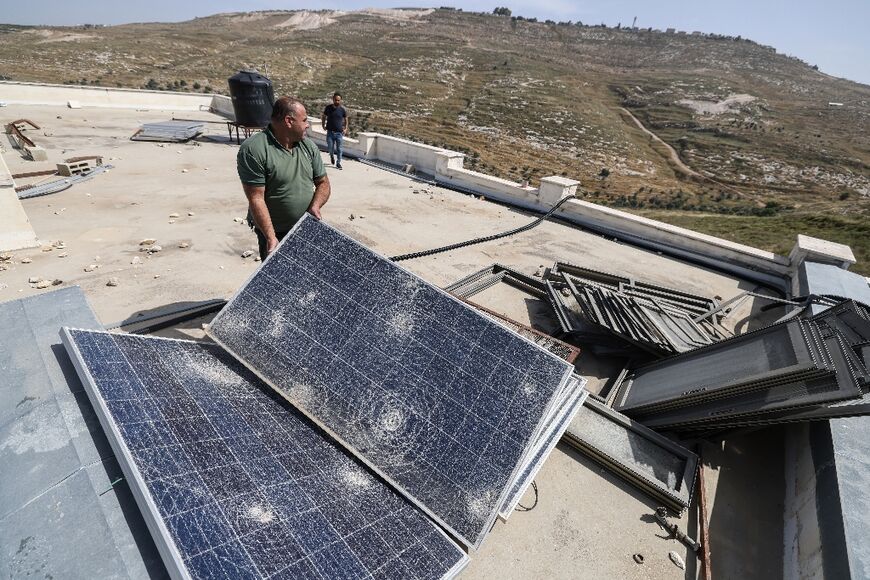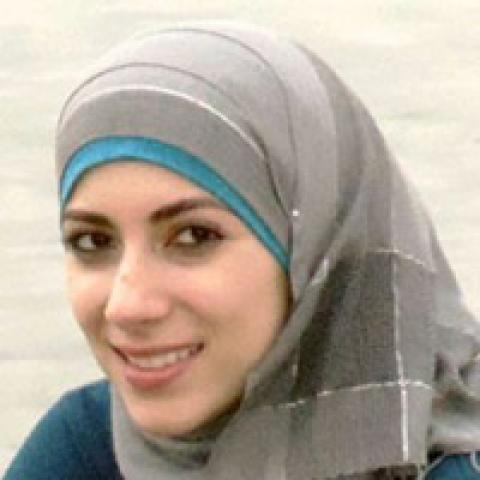Rising violence strikes fear into West Bank school
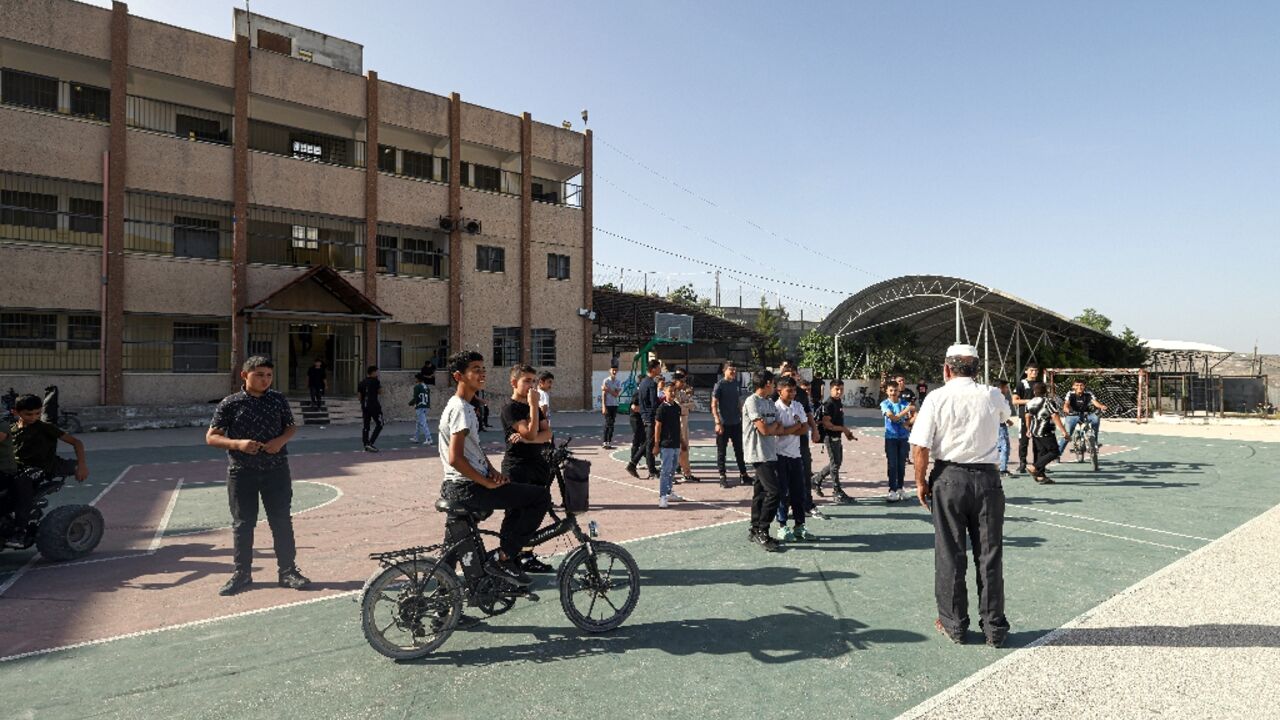
A rusty barbed wire fence towers above the students entering Urif high school in the Israeli-occupied West Bank, where spiralling violence since October 7 has struck fear into Palestinians.
"We tell the students ... to come to school together and not on their own, because we do not know when their (settlers) attack will be," said Mazin Shehadeh, vice-principal for the high school located in a village south of the city of Nablus.
On the hill above the village sits the Israeli settlement of Yitzhar, from where Palestinians say settlers descend to attack them.
"Every day when we arrive, we inspect the area around the school for fear that there might be explosive devices," said the educator, whose office floor was charred black by what he said was an arson attack.
Israel has occupied the West Bank since 1967 and now some 490,000 Israelis live across the Palestinian territory in settlements that are considered illegal under international law.
Palestinians have long faced harassment by settlers, but the number of attacks has soared since Hamas's unprecedented attack on Israel nearly eight months ago triggered the devastating war in Gaza, according to the United Nations.
- 'Tear gas and stun grenades' -
Recalling an attack on the school, one 15-year-old student said, "We were in class, and the settlers attacked us from the back of the school. They threw stones at the windows".
"The (Israeli) soldiers were standing above, near the water tank, firing tear gas and stun grenades toward the school."
Now the pupils fear an attack at any moment.
"At the slightest noise, at the slightest gunshot or at the slightest explosion near the town, we say to ourselves that the (Israeli) army or the settlers have attacked the school," said Qais.
Since October 7, 519 Palestinians have been killed in the West Bank by Israeli soldiers or settlers, according to the health ministry in Ramallah.
In the same period, at least 14 Israelis were killed in attacks by Palestinians, according to Israeli authorities.
More checkpoints and other Israeli military installations have been erected since the start of the war, complicating the journey to school.
"Sometimes the army harasses us, sends us tear gas bombs and sound bombs and prevents us from going to school," said a 12-year-old student.
The school year, which ended on Wednesday, turned into "a nightmare" for Palestinian students, the United Nation's children's agency UNICEF has said.
Some 27.5 percent of elementary school students do not feel safe at school, according to a study by UNRWA, the UN agency for Palestinian refugees.
Between October 7 and May 7, 60 children were killed in the West Bank, 345 injured and 68 schools targeted by acts of vandalism, according to the Palestinian education ministry.
It said another 125 students have been detained by the Israeli military, who when asked by AFP about the arrests said they were part of their "counter-terrorism activities"
Last week, a 15-year-old boy was shot dead while evacuating from his school by bicycle during an Israeli military raid in the northern West Bank city of Jenin.
Even before the war, violence between communities in the West Bank near the school reached a record high.
In June 2023 two residents of Urif village, members of the armed group Hamas, killed four Israelis in an attack to the south.
In response, dozens of masked settlers could be seen in footage reviewed by AFP setting fire to a school and trees, and throwing stones at homes in the village.
- 'How can they learn? -
In response to repeated attacks by settlers, school administrators in Urif said they had spent the equivalent of 62,500 euros on a tarpaulin to catch thrown stones and they have also installed barbed wire.
In the classrooms, thick purple curtains are drawn over barred windows, and staff run regular evacuation drills.
The violence and consequent fortifications have made students feel like they are trapped and "entering a prison", said Shehadeh.
The school has had many of its "most hardworking and brilliant students" drop out, he added.
Others have left to help their parents, who have been without an income since Israel placed increased restrictions on Palestinians working in Israel.
Those pupils who remain only attend in-person classes three days a week and do the rest remotely due to the security concerns and the Palestinian Authority not paying teachers their full salaries.
However, not all students have the electronic devices or internet connections needed to learn remotely, said Refat Sabbah, founder of the Teacher Creativity Centre, a charity.
"In such a context, when students feel at risk at every moment, how can they learn? The psychological impact is huge on the students and the teachers," he added.


